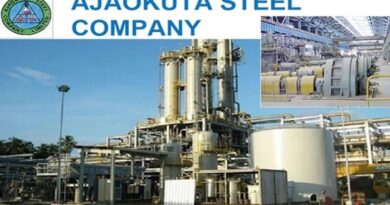Nigeria’s Manufacturing Index expands again in June
The Manufacturing Purchasing Managers’ Index (PMI) recorded expansion in the manufacturing sector for the third consecutive month as it increased to 52.9 index points in June 2017. The Central Bank of Nigeria’s (CBN) PMI report obtained from the apex bank’s website report revealed.
The PMI which is an indicator of the economic health of the manufacturing sector is based on five major indicators: new orders, inventory levels, production, supplier deliveries, and the employment environment.
A composite PMI above 50 points indicates that the manufacturing/non-manufacturing economy is generally expanding, 50 points indicates no change and below 50 points indicates that it is generally declining
The latest PMI report showed that 12 of the 16 sub-sectors reported growth in the review month in the following order: computer & electronic products; paper products; plastics & rubber products; primary metal; transportation equipment; petroleum & coal products; appliances & components; textile, apparel, leather & footwear; furniture & related products; electrical equipment; food, beverage & tobacco products; and fabricated metal products.
Four other sub-sectors, on the other hand, declined in the order: non-metallic mineral products; cement; chemical & pharmaceutical products, and printing & related support activities.
Also, the production level index for the manufacturing sector grew for the fourth consecutive month in June 2017. The index at 58.2 points indicated an increase in production but at a slower rate, compared to the previous month.
Fourteen manufacturing sub-sectors recorded increases in production levels during the review month in the following order: computer & electronic products; plastics & rubber products; transportation equipment; primary metal; appliances & components; paper products; textile, apparel, leather & footwear; electrical equipment; petroleum & coal products; fabricated metal products; furniture & related products; food, beverage & tobacco products; cement; and printing & related support activities.
Non-metallic mineral products and chemical & pharmaceutical products sub-sectors recorded declines in production.
Also, at 51.0 points, the new orders index grew for the third consecutive month. Under this, eight sub-sectors reported growths in new orders in the following order: paper products; primary metal; plastics & rubber products; computer & electronic products; petroleum & coal products; furniture & related products; textile, apparel, leather & footwear; and food, beverage & tobacco products.
According to the report, the fabricated metal products and transportation equipment sub-sectors remained unchanged, while the non-metallic mineral products; cement; chemical & pharmaceutical products; appliances & components; printing & related support activities; and electrical equipment sub-sectors recorded declines.
The supplier delivery time index for the manufacturing sector at 50.3 points in June 2017 also rose from its contractionary level in the previous month.
Seven sub-sectors recorded improvement in suppliers’ delivery time in the following order: computer & electronic products; electrical equipment; furniture & related products; cement; primary metal; food, beverage & tobacco products; and chemical & pharmaceutical products.
The non-metallic mineral products; textile, apparel, leather & footwear and transportation equipment remained the same, while six sub-sectors recorded delayed supplier delivery time in the following order: plastics & rubber products; appliances & components; petroleum & coal products; fabricated metal products; printing & related support activities and paper products.
Coming to the employment level index in June 2017, it stood at 51.1 points, indicating growth in employment levels for the second consecutive month. of the 16 sub-sectors, 10 recorded growth in employment in the following order: computer & electronic products; plastics & rubber products; transportation equipment; appliances & components; paper products; petroleum & coal products; primary metal; fabricated metal products; textile, apparel, leather & footwear; and food, beverage & tobacco products.
Six sub-sectors recorded contractions in employment in the following order: cement; non-metallic mineral products; electrical equipment; furniture & related products; printing & related support activities; and chemical & pharmaceutical products.




